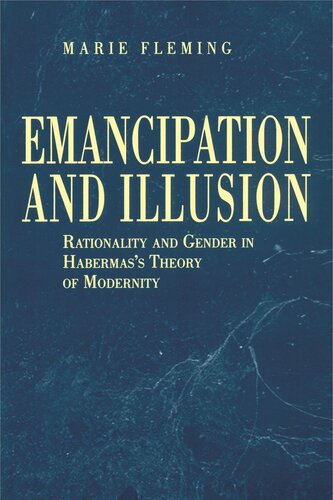

Most ebook files are in PDF format, so you can easily read them using various software such as Foxit Reader or directly on the Google Chrome browser.
Some ebook files are released by publishers in other formats such as .awz, .mobi, .epub, .fb2, etc. You may need to install specific software to read these formats on mobile/PC, such as Calibre.
Please read the tutorial at this link: https://ebookbell.com/faq
We offer FREE conversion to the popular formats you request; however, this may take some time. Therefore, right after payment, please email us, and we will try to provide the service as quickly as possible.
For some exceptional file formats or broken links (if any), please refrain from opening any disputes. Instead, email us first, and we will try to assist within a maximum of 6 hours.
EbookBell Team

4.1
20 reviewsIn this comprehensive analysis of Jürgen Habermas's philosophy and social theory, Marie Fleming takes strong issue with Habermas over his understanding of rationality and the lifeworld, emancipation, history, and gender. Throughout the book she focuses attention on the various ways in which an idea of emancipation motivates and shapes his universalist theory and how it persists over several major changes in methodology. Her critique of Habermas begins from the view that universalism has to include a vision of gender equality, and she asks why Habermas, despite deeply held concerns about equality and inclusiveness, repeatedly and systematically relegates matters of gender to secondary status in his social and moral theory. She extends her critique to a range of issues in his theory of rationality and examines what she views as his very problematical claims about truthfulness, art, and bourgeois intimacy.
The point of Fleming's critique of Habermas is not to dispute universalism, but to build on the key universalist principles of inclusiveness and equality. She is not persuaded by the view, shared by both sympathizers of Habermas and his postmodern critics, that to be for or against Habermas is to be for or against universalism. Her intention rather is to show that Habermas's theory of modernity is so structured that it cannot achieve its universalist aims. Contending that his theory is not universalist enough, she claims that universalism has to be reconceived as a radical, critical, and historical project.